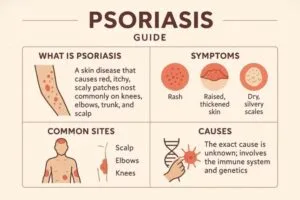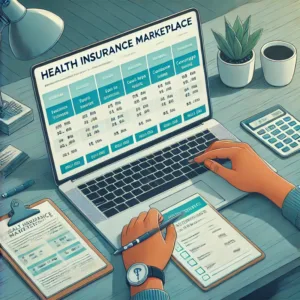Routine Ovarian Cancer Screenings: Should You Get Tested?
Table of Contents

Routine Ovarian Cancer Screenings: Should You Get Tested? 🩺💬
Have you ever asked yourself:
- “Should I get screened for ovarian cancer during my annual check-up?”
- “Is there a Pap smear for ovarian cancer?”
- “How do I know if I’m at risk?”
These are important questions — especially since ovarian cancer is often diagnosed at a late stage, when treatment is less effective. So let’s get clear on who needs routine ovarian cancer screenings, what tests are available, and why screening isn’t always recommended for everyone.
🔍 What Is Ovarian Cancer?
Ovarian cancer is a type of cancer that begins in the ovaries — two small organs on either side of the uterus responsible for producing eggs and hormones.
It’s often called the “silent killer” because its early symptoms (like bloating, pelvic pain, or urinary urgency) are vague and easily dismissed.
💡 According to the American Cancer Society, ovarian cancer ranks fifth in cancer deaths among women, and it’s the most deadly of all gynecological cancers.
⚕️ Are There Routine Screenings for Ovarian Cancer?
Is there a standard test like a mammogram or Pap smear?
👉 No — not for the general population.
Unlike breast or cervical cancer, routine ovarian cancer screening is not recommended for average-risk women due to the lack of a reliable test with a good balance of sensitivity and specificity.
🧪 What Tests Are Used to Detect Ovarian Cancer?
Here are the main tests currently used when a woman is at high risk or shows symptoms:
🔬 1. CA-125 Blood Test
- Measures a protein found in higher levels in women with ovarian cancer
- Not specific — can be elevated due to menstruation, endometriosis, fibroids, or other cancers
🩻 2. Transvaginal Ultrasound (TVUS)
- Uses sound waves to look at ovaries and nearby tissues
- Can detect cysts, masses, or irregularities
- Doesn’t definitively diagnose cancer but raises red flags
🧬 3. BRCA Genetic Testing
- For women with a strong family history of breast or ovarian cancer
- Identifies mutations that significantly increase ovarian cancer risk
🧠 Pro tip: These tests are used diagnostically, not routinely. In high-risk groups, however, they may be part of regular surveillance.
⚠️ Who Should Consider Screening?
Routine screening is not for everyone, but you should talk to your doctor if you meet any of these:
✅ You should consider screening if:
- You have a strong family history of ovarian, breast, or colon cancer
- You carry a BRCA1, BRCA2, or Lynch syndrome gene mutation
- You’ve had repeated pelvic symptoms like bloating, pain, early satiety, or urinary urgency for >2 weeks
🚫 You likely don’t need screening if:
- You’re healthy, premenopausal, and have no family history or symptoms
- You’re relying on a Pap test (it does not detect ovarian cancer)
🧠 Why Isn’t Ovarian Cancer Routinely Screened?
Because no test currently exists that can catch early ovarian cancer accurately without false positives.
🔍 Here’s the risk:
- False positives → unnecessary surgeries and anxiety
- False negatives → missed diagnosis and false reassurance
According to the USPSTF (U.S. Preventive Services Task Force), routine ovarian cancer screening does not improve mortality rates in average-risk women and can do more harm than good.
🧬 How to Lower Your Risk
While you can’t always prevent ovarian cancer, these strategies can help:
- Birth control pills (5+ years use) – reduce ovarian cancer risk by 30–50%
- Tubal ligation or hysterectomy – may lower risk
- Regular pelvic exams – not diagnostic but may identify masses
- Know your family history – and act on it
- Healthy lifestyle – antioxidant-rich diet, maintain healthy weight
🧬 Genetic counseling is key if you have any red flags in your family.
🌟 Conclusion: Should You Be Screened for Ovarian Cancer?
If you’re average risk, current guidelines say no routine screening is needed.
But if you have:
- A strong family history
- BRCA or Lynch syndrome
- Persistent, unexplained pelvic symptoms…
👉 Then yes, screening and further evaluation could be lifesaving.
✨ Bottom line: Routine ovarian cancer screenings should be individualized — not automatic. Ask your OB/GYN. Be your own advocate. Early awareness can change everything.
❓ FAQ
1. Is there a Pap test for ovarian cancer?
No — the Pap test only screens for cervical cancer.
2. What age should I start screening for ovarian cancer?
There’s no set age for routine screening unless you’re high-risk — in which case, speak with your provider starting in your 30s.
3. How is ovarian cancer usually detected?
Often through symptoms, imaging (ultrasound), and CA-125 blood tests when suspicion arises.
4. Should I get genetic testing?
If you have a strong family history of breast/ovarian cancer or Ashkenazi Jewish ancestry — yes, it’s worth considering.
5. Can I still get ovarian cancer after menopause?
Yes — in fact, most ovarian cancers occur in postmenopausal women.
📚 References:
- American Cancer Society – Ovarian Cancer
- USPSTF Guidelines – Ovarian Cancer Screening
- CDC – Ovarian Cancer Risk Factors














Post Comment